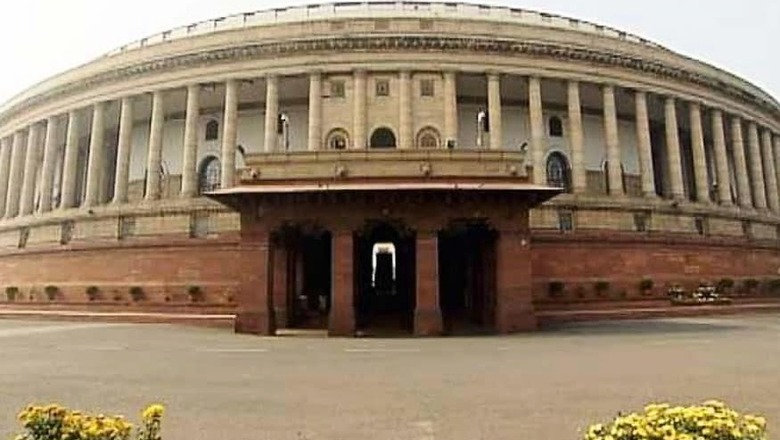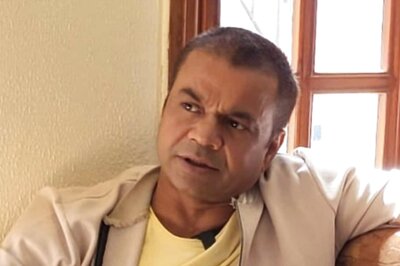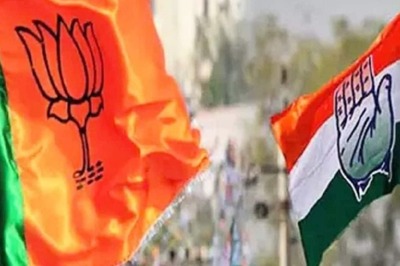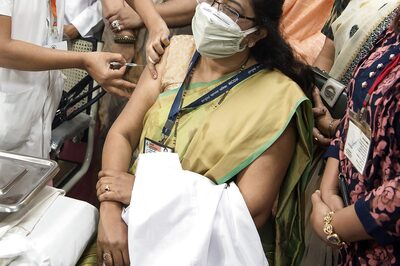
views
The Rajya Sabha spends 40 per cent of its functional time on deliberating issues of public importance, 32 per cent on ensuring accountability of the executive and 28 per cent in making laws, a survey has revealed.
The first-of-its-kind analysis conducted by the Rajya Sabha Secretariat also reveals that the Upper House functioned for 340 hours per year.
During 1978-2018, the House clocks 77 per cent productivity and 23 per cent loss of time, the survey reveals.
The analysis on utilisation of time during the sessions by the Rajya Sabha revealed that the House spends 40.20 per cent of its functional time on deliberating various issues of public importance, followed by 32.22 pc in ensuring the accountability of the executive and 27.57 pc in making laws.
This pattern of time use by the Upper House is an outcome of the analysis undertaken by the Rajya Sabha Secretariat for the 41-year period since 1978 for which required data is available.
This trend analysis was undertaken after Rajya Sabha Chairman M Venkaiah Naidu sought to know details of time spent by the House on its three functions -- the legislative, oversight and deliberative.
The deliberative functions of Rajya Sabha include taking up issues of public importance and concerns under various instruments like discussion on the Motion of Thanks to the President's Address, General Discussion on the Budgets, Short duration discussions, Zero Hour and Special Mentions, Discussion on working of Ministries etc.
While the general discussion on the Budgets took a share of 7.08 pc of the total functional time of Rajya Sabha during 1978-2018, the share of discussion on the Motion of Thanks comes to 4.36 pc while 3.93 pc of the time was spent discussing the functioning of various Ministries.
The Zero Hour and Special Mentions took about 10 pc of the time of the House.
The Oversight function of the House is ensured through Questions (time share of 14.19 pc), Calling Attention Notices (7.11 pc), Statements of Ministers on various issues (6.33 pc), Private Members' Resolutions (3.16 pc), Half an Hour Discussions (1.25 pc), the survey reveals.
In an indication of the broad trend, Rajya Sabha spent 27.57 pc of its functional time on making of laws for the country, which includes 24.05 pc of the time spent on consideration and passing of the government bills and 3.52 pc on Private Members' Bills.
During the period the survey was undertaken, the House spent 3,429 hours on consideration and passing of Government Bills and 489 hours on Private Members' Bills.
The time spent on Government Bills ranged from 10.87 pc of the total time in 2015 to 40.09 pc in 2002. However, this has touched a record high of 45.90 pc during the historic 250th Session of Rajya Sabha in winter last year, when a record 15 Bills were passed with the House spending 49.08 hours out of the total session time of 107.05 hours during this landmark session.
During 1978-2018, Rajya Sabha held 3,022 sittings and transacted business for a total of 13,946 hours as against the total available time of 18,132 hours averaging 6 working hours per sitting.
This comes to 76.91 pc productivity of the House while 23.09 pc of the total available time was lost due to disruptions, the RS secretariat claimed after the analysis.
While all instances of RS working for above 500 hours per year were during 1978-1988 with an evident slide afterwards, the survey says.
Since 1995, it revealed, there were only 6 instances of the House functioning for more than 300 hours per year during the 23 years.
The Rajya Sabha Secretariat did this analysis during the first week of resumption of office from April 20.
Naidu has further desired a comparison of this revealed trend with that of Lok Sabha and other leading Parliaments of the world.



















Comments
0 comment